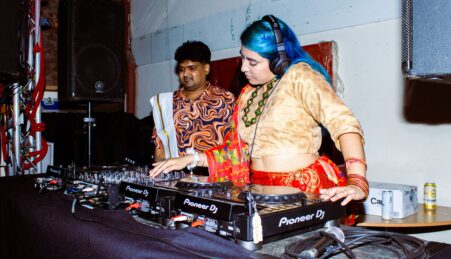By Natasha Marshall
Gautam Malkani’s Londonstani is an intriguing tale of Asian youth culture in London, in which four middle class, teenage boys: Jas, Hardjit, Ravi and Amit, explore the limits and hierarchies of their rigid rule system. Whilst potentially being quite offensive, the dialogue in the novel consists of ‘rude boy’ slang and the young generations’ use of mobile phones and texting. Nevertheless, it can be read in context and holds no barriers in understanding the unfolding events. Additionally, the novel comes complete with its own glossary at the back. Although there is a fair proportion of gang crime within the novel- including racist comments, violence, theft, arson and bullying; the techniques and themes used, such as language, a consistent lull of consumerism and the unexpected twist at the very end, provide a thought-provoking exploration of ethnic identity.
The boys, currently retaking their A-levels, look further afield and develop a keen interest in stolen mobile phones. Instead of knuckling down and ensuring their A-levels are passed second time round, they sell phones and make a small profit. That is until they steal Mr Ashford’s phone – their old schoolteacher, who ironically leads them to Sanjay. Sanjay is the ultimate ‘rude boy’, he cruises around in Porsches, dates as many women as he wants in the coolest restaurants and nightclubs, he even has bodyguards. Mr Ashford practically begs the boys to meet Sanjay, with the prospect of him talking some sense into them and persuading them not to throw their education away. Yet, it is Sanjay who begins to rapidly progress the stolen phones situation and claim complete control. The boys become caught up in a world of ‘bling bling’ economics as they’re absorbed by consumerism. Fast cars, expensive nightclubs, Jas brags about his black Kenzo suit costing £500. But, if you’re getting a hundred and twenty pounds for every stolen phone you provide, then you can do those things, right?
The story is narrated by Jas with the second part of the story being heavily focussed upon him. He takes a different path than the others and engages in a close relationship with the beautiful Samira, but she is Muslim, which is a noticeable problem. Jas, who is keen to impress but also commonly mocked by the others, decides to keep his newfound relationship from them. In fact the only other person who knows is Sanjay. Sanjay even controls this situation; plans his dates, lends him the Porsche, inundates Jas with dating tips; which are put into practise as we are taken on a journey of multicultural romance and potentially, the turmoil that might come crashing after it. This quickly becomes the beginning of the end for Jas. He’s blamed by the gang for the death of Arun, Amit’s brother, then bribed with enhanced steamy photographs of himself and Samira, all before being beaten up by three masked attackers when attempting a burglary of his own father’s phone factory. Not to mention burning it down. If this wasn’t shocking enough for you, the twist certainly leaves you feeling somewhat fooled.
The title of the novel alone creates an array of responses. Londonstani. It might be easy to assume that it refers to the debate about the cities radicalised Muslims. Yet, Londonstani refers to the narrative of Jas instead of the whole city, which would be referred to as Londonstan. In addition, the term can sometimes be interpreted as a celebration of multi-culture within London, which is most definitely celebrated within the novel. Malkani’s explorative celebration demonstrates how ethnic identity is in fact used to establish the boys’ masculinity. For example, Hardjit, establishes his masculinity by changing his name from Harjit to Hardjit. Subsequently, the dialogue and glossary explore in depth how masculinity is fed into an ethnic identity. The use of speech without inverted commas in the novel creates a direct and somewhat blunt narrative. Fast and straight to the point, we are immediately introduced to Hardjit, who, in the opening chapter beats a ‘Gora’ for calling him a ‘Paki’. Furthermore, Malkani’s inclusion of a glossary for the ‘rude boy’ slang words, and an integration of the mobile phone generations’ disregard for grammar and spelling, contribute to a complex dialogue. The notion of proper English is disregarded, symbolising how the dominant culture and systems might be overlooked.
Overall, this novel offers a warm, interesting and amusing insight into the youth and fast moving culture of today. It is interweaved with consumerism, producing cut and paste, fictionalised and performed identities. The cartoonish characters that we become familiar with highlight performed identities, which are projected by Bollywood, Hollywood and MTV Base. This is projected via consumerism, which is present right up until the very end. In this instance, racial identity is portrayed as a fictionalised performance. The exploration of identity reaches its climax here, as the twist is revealed and we are given the most suitable example of how ethnicity effects identity, and how consumerism might blend the two together, hence creating tension towards dominant mainstream society.
Natasha Marshall is a third year student in English Literature. She loves reading almost anything and hopes to become a teacher of English Literature.





Leave a reply